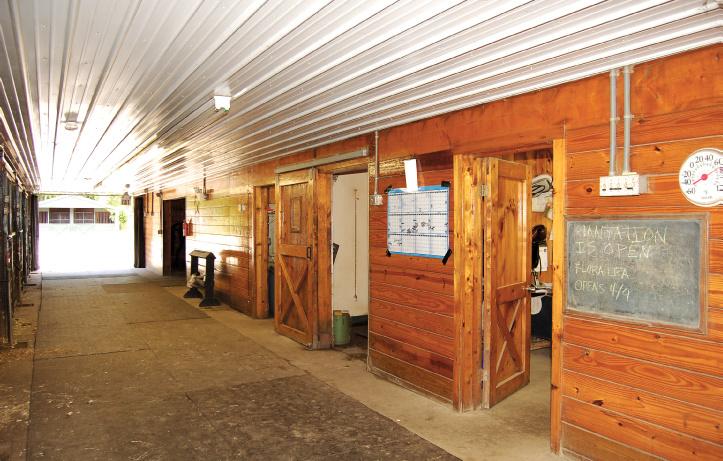
4 minute read
End of the rainbow
E N D O F T H E R A I N B O W
The Yale Polo programme has weathered the storm and found a pot of gold since the closure of its original home, reports Liz Brayboy
Advertisement
In 2009, what seemed like a devastating blow to the students of the Yale Polo programme and caused concern about the future of its horses turned out to be a blessing.
In the summer of that year, Yale University made the decision to shut down the almost 100-year-old Armory, home of the programme and originally an officers’ training facility for the military (see Spring 2012 issue of Hurlingham). It was a decision that set off a chain of events, which, in December 2014, resulted in the purchase of a wonderful new facility in Bethany, Connecticut, about 20 minutes away from the Yale campus. The owner of that property, which had been used as a training area for eventers, was moving her operation to Florida. It included stabling for 18 horses, a large arena and 12 acres of pasture with a cross-country course as well as a small house.
The Yale Polo and Equestrian Center (YPEC) Board had been looking at potential homes for the programme ever since the historic Armory had closed and the horses moved off-campus to interim premises. The group had worked with the New Haven Economic Development Council to consider properties within the city limits, but none met the requirements of the programme or council. The board had also looked at 10 other potential locations in the surrounding towns and at other equestrian and polo centres in the area. In the autumn of 2013, things began to turn around when the aforementioned 79 Rainbow Road quietly came on to the market. The board jumped at the opportunity to acquire it and matching funds gifted by the Orthwein Family launched a fundraising campaign that is still actively supported by alumni and friends.
It approached the US Polo Association about supporting the acquisition and received approval for a three-year loan that will allow time for further donations to be secured.
An additional, significant gift from Mr Naveen Jindal – whose son, Venkatesh, is a freshman on the polo squad at Yale – ensured the board could move forward with the purchase last year. With

The new f acility represents a major turning point for the Yale programme


Opposite The Yale team love their new home. This page, clockwise from above Ed Armstrong, coach/manager; views of the land at 79 Rainbow Road and its stable aisle

the new home in place, the YPEC realised that it would also need a full-time coach/manager to work with the teams and oversee the operation of the premises. Ed Armstrong was selected after a recruitment process during which 10 applicants were interviewed.
Armstrong brings a wealth of experience and knowledge to a job that requires him to take the programme into the future. He has already built and grown several businesses, including the Byfield Polo Club, and has taught many new players over the years. He was with the USPA for almost 10 years, most recently as director of tournaments and clubs. He managed the intercollegiate/interscholastic programme for the organisation for four seasons and, in the past few years, has branched into the international arena. He was recently named vice-chairman of the Arena Committee for the USPA.
In preparation for bringing back the horses, volunteers worked to ready the arena. Plumbers, electricians and other contractors have made upgrades to the infrastructure, and the playing surface was levelled in anticipation of the first matches, which started on 23 January. The new facility will host the Intercollegiate Women’s Preliminary tournament at the end of February and will be officially dedicated in early April.
At Yale, the collegiate programme continues to grow, with more than 40 undergraduate and graduate students participating in beginner lessons, competing teams and practice chukkas.
YPEC has been able to maintain student dues at an affordable level while still operating in the black, and anticipates the move to a full-time location means more opportunities and benefits will be available to students, local players and alumni. In addition, having a year-round operation will allow for clinics and lessons during the summer months – the best way to introduce new adults and interscholastic students to the sport.
All in all, the new facility has brought about a major turning point for the Yale Polo programme – one that almost didn’t seem possible during those dark days in 2009.










